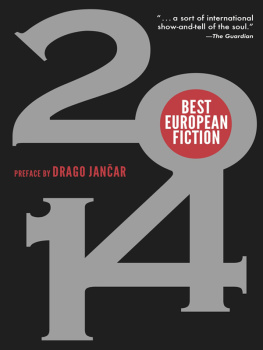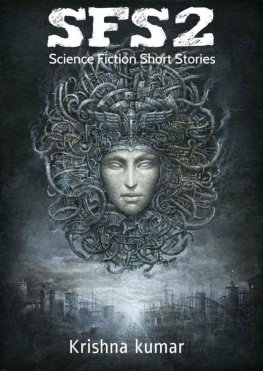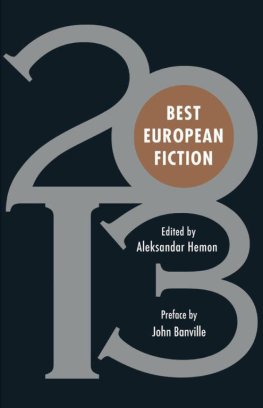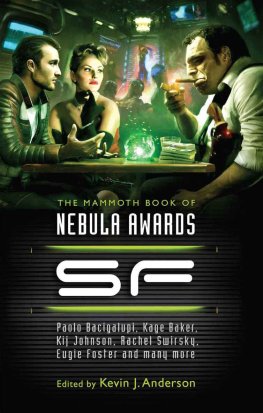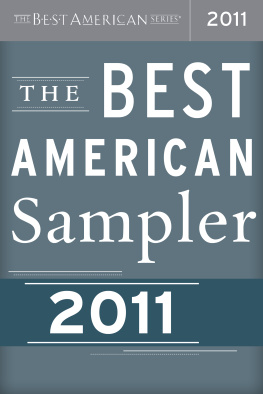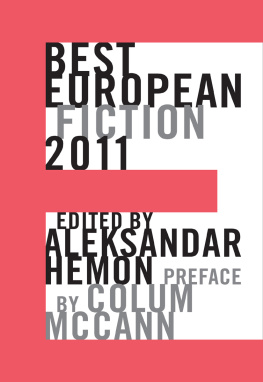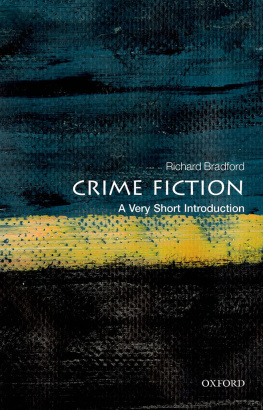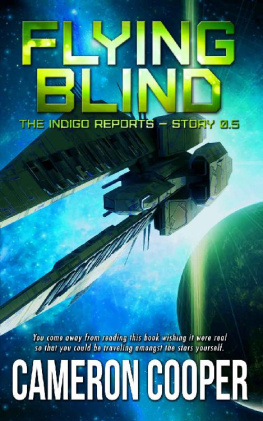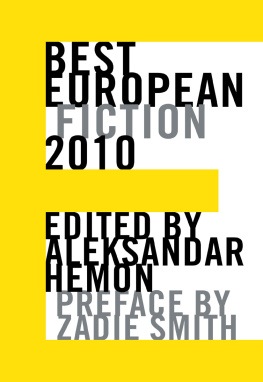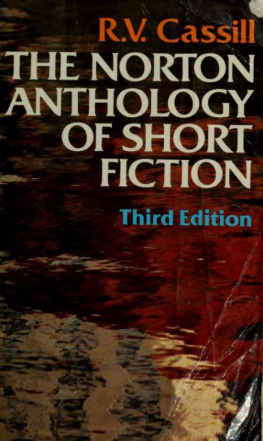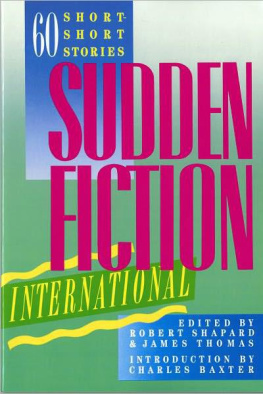
The collections diverse range of styles includes more experimental works than a typical American anthology might... [Mr. Hemons] only criteria were to include the best works from as many countries as possible.Wall Street Journal
This is a precious opportunity to understand more deeply the obsessions, hopes and fears of each nations literary psychea sort of international show-and-tell of the soul.The Guardian
Readers for whom the expression foreign literature means the work of Canadas Alice Munro stand to have their eyes opened wide and their reading exposure exploded as they encounter works from places such as Croatia, Bulgaria, and Macedonia (and, yes, from more familiar terrain, such as Spain, the UK, and Russia). Booklist Starred Review
We can be thankful to have so many talented new voices to discover.Library Journal
What the reader takes from them are not only the usual pleasures of fictionthe twists and turns of plot, chance to inhabit other lives, other ways of beingbut new ways of thinking about how to tell a story. Christopher Merrill, PRIS The World Holiday Pick
The English-language reading world, wherever it may be, is grateful.The Believer
The best of the stories here are finely attuned to the coincidence of lightness and pathos in things, and there is not one that is not worth reading.Times Literary Supplement
The book tilts toward unconventional storytelling techniques. And while weve heard complaints about this beforewhy only translate the most difficult work coming out of Europe?it makes sense here. The book isnt testing the boundaries, its opening them up.Time Out Chicago
BEST
EUROPEAN
FICTION
2014
Preface by
DRAGO JANAR

Copyright 2013 by Dalkey Archive Press
Preface copyright 2013 by Drago Janar
All rights reserved
Please see Rights and Permissions
on page 314 for individual credits
ISBN 978-1-56478-898-6
ISSN 2152-6672
ISBN 978-1-564-78825-2 (e-book)
www.dalkeyarchive.com
Funded in part by the Illinois Arts Council, a state agency

Please see Acknowledgments on page 313 for additional
information on the support received for this volume
Printed on permanent/durable acid-free paper
and bound in the United States of America
Cover: design by Gail Doobinin
composition by Mikhail Iliatov
In recent years, a number of European institutions and journal editors have asked if I would write about whether such a thing as European literature exists. Ever since East and West shook hands across the debris of the Berlin Wall and began living together politically and economicallyand particularly since the last tragic experience of Europes twentieth century, the wars in the former Yugoslaviasome people apparently have assumed that the all-encompassing European idea of international coexistence and maximum tolerance must of necessity also lead to an all-encompassing European literary aesthetic. I believe that Europe, just as the rest of the world, needs these values in order to live and survive, but should it be the job of literature to build and promote them? Im doubtful, because that would mean we view literature as a pseudo-religion. And what sort of aesthetic would that have? Would it need to combineas I read somewherethe profundity of German, the artistry of French, the humor of English, and the suffering of Russian literature and of the so-called Russian soul? Id say a few ingredients are missing from this mess of clichsfor instance, the vejkism of Czech and the intense longing of Slovene literature. And what would the Poles, Irish, Serbs, Estonians, or Catalunyans have to add to this literary melting pot? All in all, not a good sign for attempts to define European literature in questionnaire format, most of which seem to be stuck at the superficial level of What ten books would you want to have with you on a desert island?
The question becomes less amusing if we look around and consider the environment that literature actually inhabits today. A few snide jokes at the expense of clichs arent going to make what is so obviously taking place in every European literary market go away; to wit, the erosion of well-defined aesthetic criteria and a flood of literary commercialization that demands and rewards superficiality, easy reading, and bestsellerdom. Even in the eyes of a growing number of publishers manuscript readers, these qualities have apparently replaced the elitism, challenge, and tedium of Great and Profound literature. Its apparent that not only publishers, but even authors and critics have come to equate quality with commercial success, just as culture has given way to the culture industry. The confusion is considerable, especially in the eastern reaches of the European literary continent, where the collapse of dictatorships was accompanied by a collapse of that tension between literature and society that paradoxically kept writers at the center of readers attention. These countries witnessed a sudden flood of mediocrity engineered by the publishing market. Hugely disparate ideas about literature and its functions inhabit this part of Europe, jostling and undermining each otherfrom former literary and cultural eschatologies that still eke out a living, to postmodernist scholasticism, to the kind of writing that mistakes the aesthetics of screenwriting and genre for literature and would like nothing more than to sate the publishing industrys hunger for enormous and immediate success. To the regret of most of these authors, who have developed a characteristic way of poking fun at Great and Profound literature, their dreams of bestsellerdom have for the most part had only a limited trajectory. While its true that amid the countless new literary soap operas that keep getting produced, and more recently the countless new detective stories with a human face, plumbing the depths of the seven deadly sins and weaving countless new criminal, political, and even historical plots for us, occasionally some refreshingly distinctive heroes and original stories do shine through, publishers and even quite a few talented writers have interpreted their successes in this mode as proof of some imperative to go on following the trend. Of course, the publishers, for their part, have long since figured out whats at stake and what has to be sacrificed in order to win it: domestic or foreign literature (in translation or otherwise) that requires exertion on the part of the reader, literature featuring any kind of linguistic experimentation or thematic depthin a word, the tedium that only a hopelessly small minority of bookworms can afford as a luxury.
In Eastern Europe, there is no shortage of disappointment in this brave new world. Many writers who once thought that democracy and the new, relaxed atmosphere it lent society would validate the deep longing for freedom that was present in their works and that once brought them renown, now look upon the general apathy of their societies in despair. Others, who were convinced that their literature spoke from out of the depths of the nations spirit and expressed an authentic genius loci, look at the literary kitsch everywhere around them in disgust. And still other writers, who joined in on the easy minting of generic entertainment, which in their case was supposedly still literature despite all, are discovering to their amazement that democracy is in fact a very majoritarian affair, well-suited to mediocrity, and always happy to welcome in even more superficiality, even more facile tricks than their
Next page
